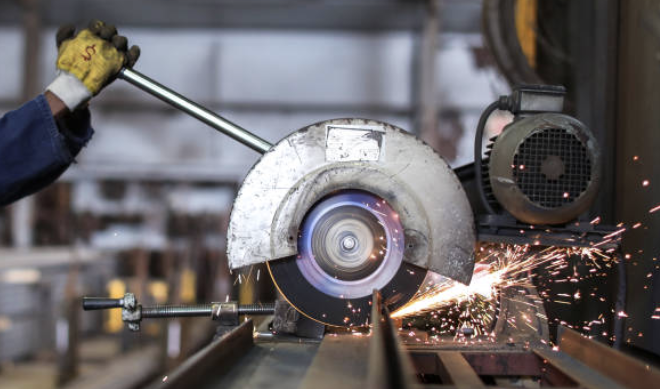
Posted on Thursday, October 31, 2024
As the world embraces sustainability, the construction and manufacturing industries are facing increasing pressure to adopt greener, more efficient practices. South Africa, with its burgeoning construction sector and commitment to eco-friendly initiatives, is no exception. One technological advancement playing a pivotal role in reducing waste and promoting sustainable practices in the construction industry is roll forming. Roll forming machines enable the production of eco-friendly metal components with minimal waste, making them a valuable tool for South African companies striving to meet the growing demand for green construction materials.
Roll forming is a manufacturing process that uses continuous bending operations to shape metal into desired profiles. Unlike traditional cutting and welding methods, roll forming allows for high precision with minimal material waste. This method not only reduces the volume of scrap metal but also optimizes material use, making it an eco-friendly choice for manufacturers.
The precision and flexibility of roll forming machines mean manufacturers can produce metal components with exact specifications. This is particularly valuable in sustainable construction, where precise, lightweight, and durable materials are required. These machines can create everything from roofing panels to structural beams, all while minimizing the environmental impact associated with conventional metalworking.
South African companies are increasingly recognizing the benefits of roll-formed steel for sustainable construction projects. Roll-formed steel is lightweight, durable, and recyclable, making it ideal for eco-conscious building projects. Roll forming allows companies to produce metal components for applications like solar panel frames, green roofs, and sustainable building facades, supporting South Africa's green construction initiatives.
In many cases, roll-forming machines help reduce energy consumption due to their efficiency and precision, which is especially important as South Africa seeks to address energy challenges. Companies can also recycle leftover materials, contributing to a circular economy that minimizes waste. For example, companies manufacturing roofing sheets or wall panels can use roll forming to produce high-quality components with minimal material loss, directly aligning with green building objectives.
Several South African companies are pioneering sustainable practices by leveraging roll forming technology. These companies are reducing waste, improving material efficiency, and helping shape a more sustainable future for the construction sector. Here are a few examples:
These case studies highlight the versatility and eco-friendly potential of roll forming in various applications. By investing in sustainable technology, these companies are not only reducing their environmental impact but also setting a benchmark for others in the industry.
The adoption of sustainable practices in roll forming comes with numerous benefits for South African businesses. First and foremost, companies save on material costs by reducing waste. Roll forming allows manufacturers to create precisely the amount of material required, which cuts down on both costs and environmental impact.
Another key benefit is regulatory compliance. As South Africa continues to implement policies aimed at reducing carbon emissions and encouraging sustainable practices, companies that adopt green manufacturing technologies stand to gain from tax incentives, grants, and other government support. For example, the South African National Green Fund offers funding for businesses involved in green economy initiatives, creating a financial incentive for companies to invest in sustainable practices.
Beyond financial gains, companies that embrace sustainability improve their brand reputation, appealing to eco-conscious clients and partners. In today's market, customers are increasingly looking for companies with green credentials, and those that can demonstrate their commitment to sustainability through practices like roll forming are likely to stand out.
Despite the advantages, there are challenges to adopting sustainable practices in roll forming. High equipment costs can be a barrier, especially for small businesses. Additionally, access to advanced technology is limited in certain regions, which can make it difficult for some companies to transition to sustainable methods.
However, these challenges also present opportunities. As green construction gains momentum in South Africa, the demand for sustainable materials and methods is growing. By investing in advanced roll-forming machines, South African companies can position themselves at the forefront of the industry, ready to meet the future demands of a greener construction sector. Furthermore, the rise of government incentives and the availability of funding sources like the Green Fund can make the initial investment in sustainable technology more feasible.
Roll forming technology offers South African companies a powerful tool for reducing waste and promoting sustainability in the construction sector. By embracing eco-friendly practices, companies can not only improve efficiency and cut costs but also contribute to a greener, more sustainable future. South Africa's commitment to sustainable development in construction, supported by the advantages of roll-forming technology, reflects a growing global trend toward environmental responsibility.
As South Africa continues to transition toward sustainable building practices, roll-forming machines will play a crucial role. Companies that invest in this technology will not only benefit from cost savings and a stronger brand reputation but will also help lead the way in South Africa’s shift toward sustainable construction. For manufacturers and builders alike, adopting green practices in roll forming is not just a smart business move—it’s a commitment to a brighter, more sustainable future.

Used Purlin Roll Forming Machines for Sale Worldwide
Posted on Sunday, January 25, 2026
Pre-Owned Roll Forming Machines for Purlin & Structural Steel Profiles

Used Roof Panel Roll Forming Machines for Sale Worldwide
Posted on Sunday, January 25, 2026
Pre-Owned Roll Forming Machines for Roofing Panel Production

Used Roll Forming Machines for Sale Worldwide
Posted on Tuesday, January 20, 2026
Pre-Owned Roll Forming Machines with Inspection, Verification & Global Support

Steel Coil Supply for Roll Forming Machines Worldwide
Posted on Tuesday, January 20, 2026
Reliable Steel Coil Supply for Roll Forming, Fabrication & Manufacturing Applications
Copyright 2026 © Machine Matcher.